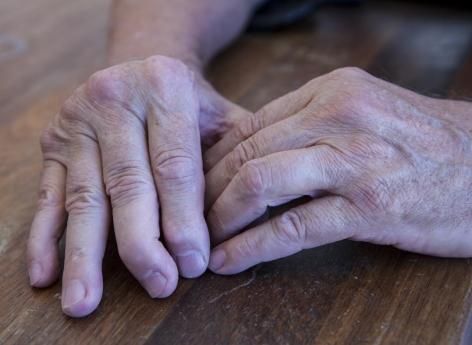THE ESSENTIAL
- Dupuytren’s disease, which causes deformed hands, is more common in northern Europe.
- It affects men more than women.
- 4% of French people are affected by this disease.
–
A new drug being tested in a clinical trial has been shown to be very effective in treating Dupuytren’s disease, which progressively deforms the hands. Very happy with their results, the authors of the research have been published in The Lancet Rheumatology.
Progressive and irreducible finger flexion
Dupuytren’s disease results in thickening of the palm of the hand and leads to progressive and irreducible flexion of one or more fingers. It is a benign and generally painless pathology, but which can prove to be very disabling in everyday life. Its origin is still poorly understood and no lasting treatment exists.
In an attempt to provide solutions to patients, the researchers recruited 140 patients with Dupuytren’s disease at an early stage. The participants were randomly divided into two groups: the first received regular injections of a monoclonal antibody, adalimumab, in the areas of the hand affected by the pathology, and the other received a simple saline solution. . The scientists then assessed the hardness of the nodules and cords in the hands of the patients after 12 months of treatment, and extended the follow-up up to 6 months after stopping treatment.
No serious adverse effects
First observation: no serious adverse effects were reported. The researchers also noted long-lasting improvements in the softening of hardened tissues in people who were treated with adalimumab, suggesting that it may be a treatment to prevent patients’ fingers from becoming damaged. contract.
“It could be a game-changer for patients who suffer from this debilitating disease,” pointed out Professor Chris Buckley, Director of Research. “Dupuytren’s disease is easy to spot at an early stage, so giving adalimumab injections at this time could prevent the condition from progressing to the stage where surgery is needed.”
–


:quality(75)/cloudfront-us-east-1.images.arcpublishing.com/elcomercio/I2CVE26N2NGORDNHADYHLEPDUY.png)